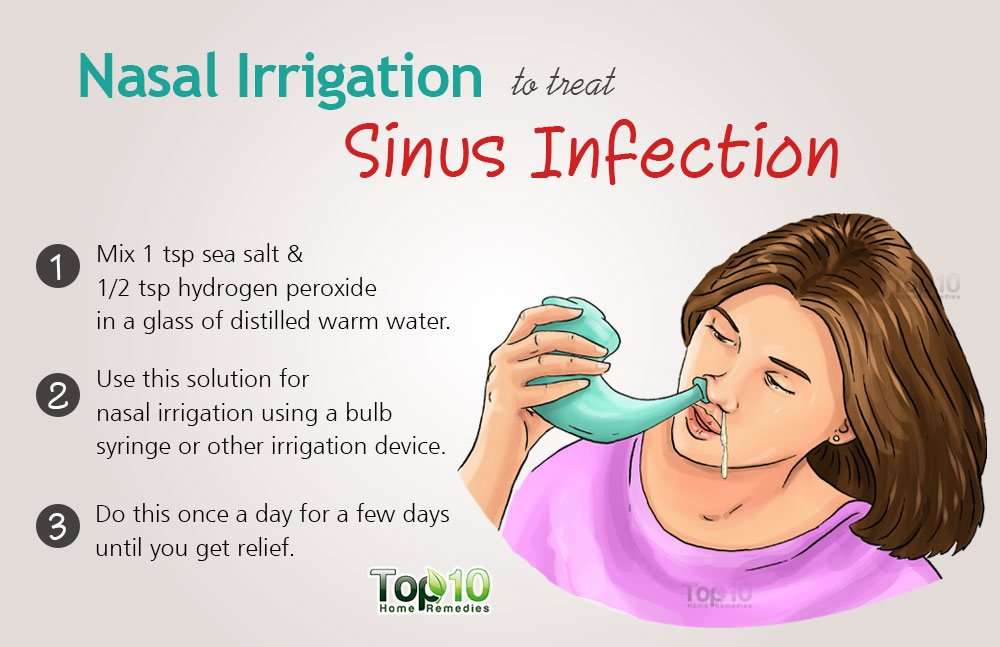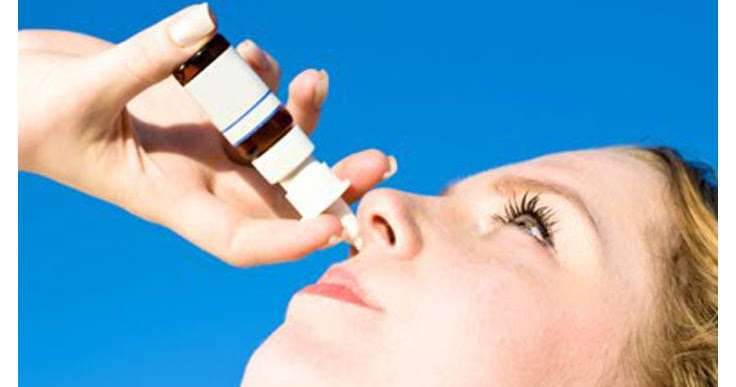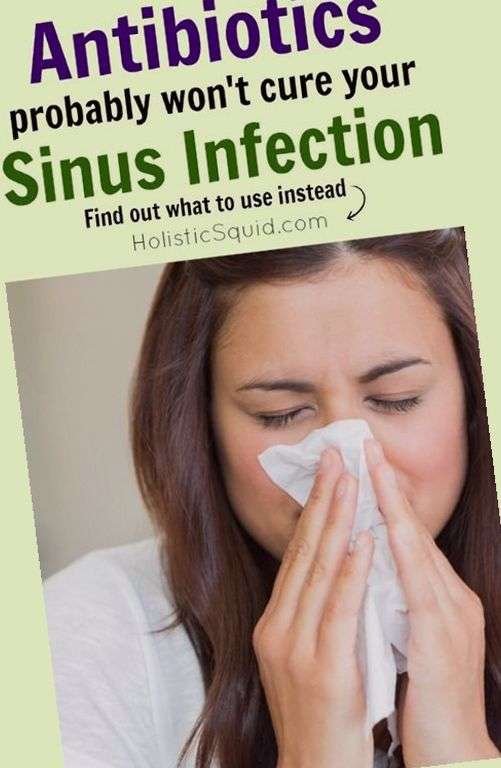What Is A Sinus Infection
The sinuses are cavities in the head that are filled with air. These air-filled pockets are lined with a very thin layer of mucus that functions to collect particles from the air that are breathed in, such as dust, germs, or other particles.
Very small hair-like projections function to sweep the mucus, along with any particles trapped inside of the mucus. The germ- or dirt-filled mucus then slides down the back of the throat and into the stomach where stomach acid works to kill any germs.
When a sinus infection occurs, this natural process involving mucus flow is blocked.
When To Seek Medical Care
See a doctor if you have:
- Severe symptoms, such as severe headache or facial pain.
- Symptoms that get worse after initially improving.
- Symptoms lasting more than 10 days without improvement.
- Fever longer than 3-4 days.
You should also seek medical care if you have had multiple sinus infections in the past year.
This list is not all-inclusive. Please see a doctor for any symptom that is severe or concerning.
Other conditions can cause symptoms similar to a sinus infection, including:
- Seasonal allergies
- Colds
How To Treat Sinus Infections Without Antibiotics
While sinus infections caused by viruses, allergies, or other non-bacterial factors may not require antibiotics, they still cause the same symptoms which make you feel sick.
Symptoms of a sinus infection include:
- Nasal congestion
- Pain or tenderness around the eyes, cheeks, or forehead
- Thick nasal or post-nasal drainage
Taking steps to alleviate your sinusitis symptoms is often the best treatment to lessen your discomfort.
Sinus infection treatment options include:
- Drink plenty of fluids
- Rest, especially the first few days, to help your body fight the infection
- Moisturize the air with a cool-mist vaporizer
- Elevate your head while sleeping to decrease post-nasal drip
- Take warm showers or baths, as steam can soothe your sore throat and loosen mucus
- Gargle with warm salt water for a sore throat
- Use saline nasal spray or nasal irrigation kit to alleviate congestion
- Use over-the-counter treatments, such as nasal drops and sprays or pseudoephedrine pills, as your doctor recommends them
What Not to Do for a Sinus Infection
You should always follow your doctors instructions when you are diagnosed with a sinus infection.
Do not:
- Ask for antibiotics if your doctor feels they are unnecessary
- Take antibiotics that are prescribed for someone else
- Skip doses of your antibiotics or stop taking your antibiotics early when your doctor prescribes them
- Save antibiotics for the next time you get sick
Read Also: Best Relief For Sinus Pain And Pressure
More Choices For Sinus Infections
If You Think You Have A Sinus Infection

If you feel you are experiencing sinus infection symptoms, make an appointment with your PartnerMD physician, and do not attempt to treat symptoms on your own. While you may initially be recommended OTC treatments, only your doctor can accurately diagnose your symptoms, and prescribe the right treatment for relief.
Have a question about your sinus infection symptoms? Contact us today to see if a relationship with a concierge doctor could be beneficial.
Corporate Headquarters
7001 Forest Avenue, Suite 302
Richmond, VA 23230
Read Also: Can Penicillin Treat Sinus Infection
What Decongestants And Nasal Sprays Soothe Or Cure Sinus Infections Or Sinusitis
Taking decongestants and mucolytics orally may be helpful in assisting drainage of sinus infection.
The treatment of chronic forms of sinus infection requires longer courses of medications, such as Augmentin, and may require a sinus drainage procedure. This drainage typically requires a surgical operation to open the blocked sinus under general anesthesia. In general, antihistamines should be avoided unless it is felt that the sinusitis sinus infection is due to allergies, such as from pollens, dander, or other environmental causes.
It is likely that the use of a topical nasal steroid spray will help reduce swelling in the allergic individual without the drying that is caused by using antihistamines although both are occasionally used. Oral steroids may be prescribed to reduce acute inflammation and to help with chronic inflammation in cases with or without polyps and in allergic fungal sinusitis.
In many people, allergic sinusitis develops first, and later, bacterial infection occurs. For these individuals, early treatment of allergic sinusitis may prevent the development of secondary bacterial sinusitis.
In rare instances or in natural disasters, fungal infections may develop in debilitated people. Death rates of 50%-85% have been reported for patients with these sinus infections. Treatment relies on early diagnosis followed by immediate surgical debridement, antifungal drugs, , and stabilizing any underlying health problem such as diabetes.
Do I Need Antibiotics For Every Sinus Infection
Many sinus infections are caused by viruses, the ones that cause the common cold. These types of infections are not cured by antibiotics. Taking an antibiotic for a viral infection unnecessarily puts you at risk for side effects related to the antibiotic. In addition, the overuse of antibiotics can lead to antibiotic resistance, which may make future infections more difficult to treat.
Recommended Reading: What Can Cure A Sinus Infection
When Does Antibiotic Resistance Occur
Antibiotic resistance occurs in a persons own body and within the community when certain drugs no longer work for a specific type of germ. This can occur when bacteria change in response to exposure to antibiotics so that the antibiotics no longer work efficiently against the bacteria.
Therefore, allergists and other specialists recommend limiting the use of antibiotics unless:
- Symptoms last over seven to 10 days
- Specific symptoms are present
- A fever is present
How To Get Rid Of A Bacterial Infection Without Antibiotics
Read Next
Bacterial infection can indeed be haunting. From severe coughing fits running nose and sore throat, bacterial infection manifests and spreads in some different ways. But instead of wasting time and money upon doctors and chemical antibiotics, try switching over to some incredible natural cures and remedies that will treat the bacterial infection, inhibit the germs and restore your health in no time. No need to stress out on how to get rid of a bacterial infection without antibiotics as bacterial infection treatment without antibiotics is now a guaranteed possibility with the scientifically proven natural cures of infection.
Recommended Reading: How To Knock Out A Sinus Infection Quick
Read Also: Sore Throat And Sinus Remedies
Sinus Infection Treatment Timeline With Antibiotics
Our sinuses are hard to reach, so it can be two to three days before antibiotic treatment begins to take effect.
It is critical to continue the whole course of antibiotics, even if you start to feel better. If you dont finish the whole course, your body could begin to build a resistance to those antibiotics. This makes future treatment more difficult.
Sometimes, patients experience negative side effects while taking antibiotics. If you experience rash, hives or have difficulty breathing while taking antibiotics, call your doctor immediately. You may be experiencing an allergic reaction. In older adults, some types of antibiotics may cause inflammation in tendons.
In addition to clearing your sinuses of infection, antibiotics also work in other parts of your body, particularly the gut. This could cause diarrhea, so you may want to take a probiotic as well.
When Do Symptoms First Appear
The symptoms of a sinus infection often come on suddenly. COVID-19 symptoms can develop more gradually 2 to 14 days after exposure to SARS-CoV-2.
A sinus infection can often happen after youve had a common viral illness, such as a cold or the flu. If your symptoms develop after youve already been sick, you may have a sinus infection.
Viruses that cause a cold or flu tend to circulate in the fall and winter months. COVID-19 can occur any time of the year. While a sinus infection could develop following COVID-19, this hasnt yet been reported by research.
A sinus infection can also occur after exposure to allergens or irritants, such as pollen, pet dander, and cigarette smoke. If you have allergies or were recently around an irritant, you may be at risk for a sinus infection.
You May Like: Dosage For Advil Sinus Congestion And Pain
Important Factors To Keep In Mind
- Avoid drinking alcohol and caffeinated drinks while you are on prescribed antibiotics or any sort of medicine, as alcohol intake reduces its effectiveness which makes the entire course useless.
- While other medicines are available over-the-counter, it is much better to ask your doctor first if you have certain allergies or condition. This is to avoid unpleasant reactions because a medicines effectiveness also depends on the individuals health.
- For a maximum result, never miss your dose on a given time. Make sure you check the labels and that you fully understand the instructions, particularly on the amount of dose that you are supposed to take.
- If you suddenly feel that theres something wrong in your body after taking your meds, observe how it affects you. If you show severe symptoms that you are not familiar with, do not hesitate to consult your doctor.
- Some antibiotics or medicines are not to be taken by pregnant women doctors usually recommend a certain brand for these kinds of patients.
- Maya International Bio Ampixilina
Also Check: Nasal Washes For Sinus Infections
Other Upper Respiratory Tract Infections

There are a few other reasons you might be prescribed antibiotics for an upper respiratory infection. Strep throat, medically known as streptococcal pharyngitis, is a sore throat caused by infection by streptococcal bacteria. It is usually treated with penicillin.
Swelling of the epiglottis, the flap of tissue covering the windpipe, is potentially life-threatening, particularly in children ages 2 to 5 years. Called epiglottitis, this condition can impact breathing and is often caused by infection with the bacteria Haemophilus influenzae type b and should be treated with antibiotics, including a cephalosporin.
If the cold leads to an ear infection, antibiotics may help resolve it if pain relievers and decongestants dont do the trick. Antibiotic use guidelines for children with ear infections differ based on their age and symptoms.
Recommended Reading: What Do They Give You For A Sinus Infection
You May Like: Mass Eye And Ear Sinus Center
Sinus Infection Definition And Facts
- Sinusitis or sinus infection is inflammation of the air cavities within the passages of the nose.
- Sinusitis can be caused by infection, allergies, and chemical or particulate irritation of the sinuses.
- The fastest way to get rid of a sinus infection can include medications, home remedies, alternative therapies, and surgery.
- Most people do not spread sinus infections to other people.
- Sinusitis may be classified as acute sinus infection, subacute sinus infection, chronic sinus infection, infected sinusitis, and noninfectious sinusitis.
- Sinusitis signs and symptoms include
Sinusitis In The Real World
How effective are antibiotics for patients diagnosed not by sinus x-rays or CTs, but by signs and symptomsas we typically do in daily practice?
A meta-analysis of 13 randomized controlled trials found that sinusitis improved without antibiotics, but it included trials in which patients were recruited based on results of imaging studies and cultures, which are not normally used in primary care clinical practice. That study compared antibiotic treatment to placebo for acute uncomplicated sinusitis 35% of placebo-treated patients were clinically cured by 7 to 12 days and 73% were improved after 7 days. Antibiotic therapy increased cure rates by 15% and improvement rates by 14%, yielding a number needed to treat of 7 to achieve 1 additional positive outcome at 7 days.
Read Also: Premier Allergy Asthma And Sinus Care
Do Antibiotics Benefit Any Subgroups
The investigators also analyzed the prognostic value of specific signs and symptoms to answer the question: Is there any subgroup of patients who might benefit more from antibiotic treatment?
Duration. Patients with a longer duration of symptoms, more severe symptoms, or increased age took longer to cure, but were no more likely to benefit from antibiotic treatment than other patients.
Symptoms, such as a previous common cold, pain on bending, unilateral facial pain, tooth pain, and purulent nasal discharge did not have any prognostic value.
Only one signpurulent discharge noted in the pharynx on examinationwas associated with a higher likelihood of benefit from treatment with antibiotics, but the NNT was still 8 in this group. Patients with symptoms for 7 days or longer were no more likely to respond to antibiotics than those with symptoms for fewer than 7 days.
Are There Any Side Effects
Steroid shots can cause a few temporary side effects. You might feel pain around the injection site for a day or two, but the pain should quickly start going away. If it doesnt seem to be going away, contact your doctor.
Other potential side effects include:
- facial flushing
- high blood sugar
- infection of the injection site
Receiving steroid shots over a long period of time can have more serious, permanent effects, such as damage to nearby cartilage or bone. This is why doctors generally dont recommend getting more than three or four injections a year for any condition.
Read Also: Common Treatment For Sinus Infection
When To Give A Steroid Shot For Sinus Infection
Doctors will want you to try home remedies in the first few days to avoid antibiotic or steroid use if possible. If the infection lasts for a number of days to weeks without improvement, your doctor may give you antibiotics, topical nasal steroids, or even a steroid shot. There are many different types and forms of steroids that may help a severe sinus infection. And the doctor will only administer the shots if you have the following issues with your recovery:
- Swelling that is interfering with your breathing.
- Nasal polyps that block air flow or mucus flow.
- You have taken antibiotics, and/or oral steroids, nasal steroids .
- You have seasonal allergies that cause repeated sinusitis
NOTE: Your doctor may not want to use steroids for sinus infection due to side-effects that can complicate other conditions you currently suffer from, including diabetes, osteoporosis, high blood pressure, and other chronic conditions that your doctor thinks are not safe to use steroids with.
Is Your Sinus Infection Caused By A Virus Or Bacteria
Physicians may not know if sinusitis is bacterial or viral, because the diagnosis is typically done by observing symptoms. Symptoms include:
- Nasal congestion
- Headache
- Thick nasal or post-nasal drainage
Sometimes other tests such as computed tomography scan or cultures are used to help make the diagnosis.
Despite the recommendations that antibiotic use be judicious, they are still overused for sinusitis, according to many physicians who specialize in treating sinus problems.
Some physicians say they give patients with sinusitis a prescription for antibiotics, and recommend they wait three to five days before filling it, and only fill it if symptoms are not better by then. A can be used to help relieve your symptoms and promote drainage.
The longer symptoms last, the more likely a sinus problem is to be a bacterial infection, some experts say.
Also Check: Things To Help With Sinus Drainage
Two Types Of Sinus Infections
Lets differentiate between acute and chronic sinus infections. Acute sinus infections can last up to 4 weeks. If you are experiencing sinus infection symptoms for longer than 2 weeks, it doesnt mean you have a bad case of sinusitis this is normal. If you experience symptoms for longer than 4 weeks, this can be considered subacute anything that lasts longer than 12 weeks is considered chronic.
Now, lets differentiate between bacteria and viruses. Either of the two can infect the body, and each warrants a different course of treatment. Bacterial infections require antibiotics, while viral infections do not they resolve themselves. All you can do in the latter case is to drink plenty of fluids, rest, and take decongestants. The majority of cases are viral, in which case your doctor cant prescribe you with anything other than decongestants.
How Does Steroid Shot Help Sinusitis And How To Use It

Sinusitis is a painful condition that affects the tissues in the lining of your sinus cavities. It can be very uncomfortable with symptoms of pressure, headaches, facial pain, and stuffiness. Steroid shots are used when home remedies and antibiotics do not work. They can quickly reduce severe inflammation to help your body heal and recover. The effects of one shot are “short-term” and side-effects minimal with only one injection. Read on to see when the doctor may use this treatment, side-effects to watch out for, and other home remedies that may bring you quick relief.
Also Check: Quickest Way To Get Over Sinus Infection
How You Can Treat Sinusitis Yourself
You can often treat mild sinusitis without seeing a GP by:
- getting plenty of rest
- taking painkillers, such as paracetamol or ibuprofen
- avoiding allergic triggers and not smoking
- cleaning your nose with a salt water solution to ease congestion
You do not need to use all of the solution, but make a fresh solution each time you clean your nose.